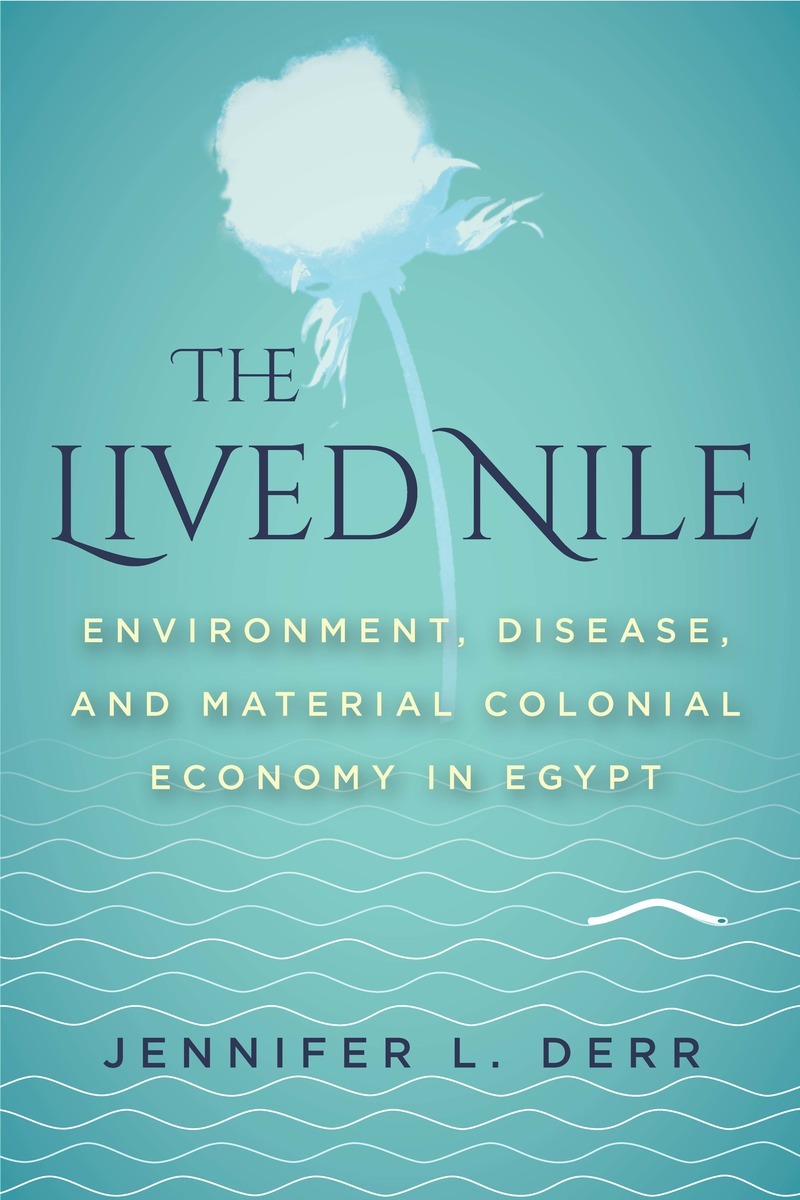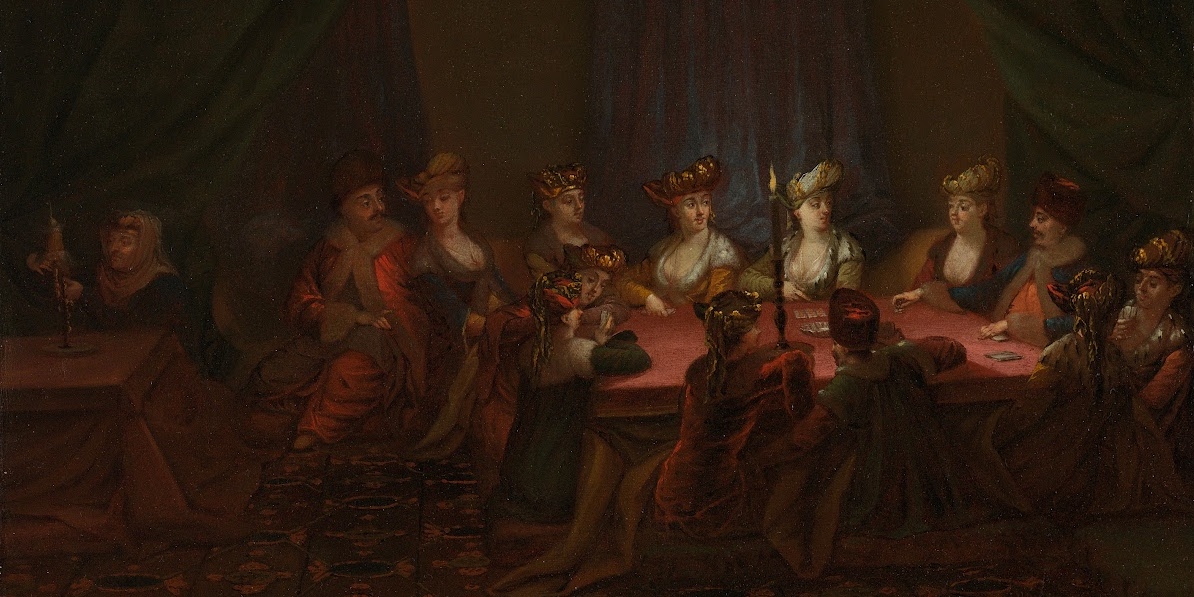Making Environmental Subjects on the Egyptian Nile
Episode 408
Feed | iTunes | GooglePlay | SoundCloud
Colonialism and violence are frequently paired in studies of the modern Middle East, but environment and violence are less commonly paired. But in this episode, Jennifer Derr explains the indelible connection between the two in a conversation about her recent monograph The Lived Nile: Environment, Disease, and Material Colonial Economy in Egypt. According to Derr, the transformation of Egypt's economy under British rule was experienced as a form of violence for ordinary Egyptians. "The violence of colonial economy and specifically colonial labor was made manifest on the bodies of laborers." In our conversation, we explore the transformation of the Nile and its environment under colonialism and consider how these transformations changed the nature of disease in the region with damaging consequences for the workers in intimate contact with the new nature of the Nile.
Stream via SoundCloud
Contributor Bios
 |
Jennifer L. Derr is an historian of science, medicine, political economy, and the environment in the modern Middle East. She is an Assistant Professor of History at the University of California, Santa Cruz. |
 |
Edna Bonhomme is currently a Postdoctoral Fellow at the Max Planck Institute for History of Science where she is working on her book manuscript "Ports and Pestilence in Alexandria, Tripoli, and Tunis" which addresses the convergence of sanitary imperialism and traditional medicine during the late nineteenth and early twentieth centuries. In addition to her book project, she is collaborating with Berlin–based artists and writers who are using decolonial methodologies, feminist practices and diachronic histories in order to upend uneven power dynamics in archives, pedagogy, and science. In addition to her academic interests, she writes for publications including but not limited to Africa is a Country, Contretemps, Der Freitag, Jacobin Magazine, Mada Masr, and Viewpoint Magazine. She has previously taught at Drexel University (2016, 2017), Humboldt University (2018), and Bard College Berlin (2019). |
Credits
Episode No. 408
Release Date: 2 April 2019
Recording Location: Berlin, Germany
Audio editing by Chris Gratien
Music: Zé Trigueiros
Bibliography courtesy of Jennifer Derr
Release Date: 2 April 2019
Recording Location: Berlin, Germany
Audio editing by Chris Gratien
Music: Zé Trigueiros
Bibliography courtesy of Jennifer Derr
Select Bibliography
Jennifer L. Derr. The Lived Nile: Environment, disease, and material colonial economy in Egypt. Stanford, CA: Stanford University Press, 2019.
----------. “Labor-time: Ecological bodies and agricultural labor in 19th and early 20th-century Egypt.” International Journal of Middle East Studies 50 no. 2 (May 2018): 195-212.
----------. A Draft of the Colony: Historical Imagination and the Production of Agricultural Geography in British-Occupied Egypt” in Environmental Imaginaries of the Middle East and North Africa, edited by Edmund Burke III and Diana K. Davis, 137-56. Athens: Ohio University Press, 2011.
----------. “The Dirty Subject of the First World War” International Journal of Middle East Studies 46 no. 4 (November 2014): 781-783.
Anderson, Warwick. Colonial pathologies: American tropical medicine, race, and hygiene in the Philippines. Durham: Duke University Press, 2006.
Aso, Michitake. Rubber and the Making of Vietnam: An Ecological History, 1897-1975. Chapel Hill: University of North Carolina Press, 2018.
Barnes, Jessica. Cultivating the Nile: The everyday politics of water in Egypt. Durham: Duke University Press, 2014.
Davis, Diana. Resurrecting the Granary of Ancient Rome: Environmental History and French Colonial Expansion in North Africa. Athens: Ohio University Press, 2007.
Fahmy, Khaled. “The Anatomy of Justice: Forensic Medicine and Criminal Law in Nineteenth-Century Egypt.” Islamic Law and Society 6 (1999): 1-48.
Gilmartin, David. Blood and Water: The Indus River Basin in Modern History. Berkeley: University of California Press, 2015.
Gratien, Chris. "The Ottoman Quagmire: Malaria, Swamps, and Settlement in the Late Ottoman Mediterranean." International Journal of Middle East Studies 49, no. 4 (2017): 583-604.
Gross, Miriam. Farewell to the God of Plague: Chairman Mao’s campaign to deworm China. Berkeley: University of California Press, 2016.
Jakes, Aaron George. “The Scales of Public Utility: Agricultural Roads and State Space in the Era of the British Occupation.” In The Long 1890s in Egypt: Colonial Quiescence, Subterranean Resistance, edited by Marilyn Booth and Anthony Gorman, 57-86. Edinburgh: Edinburgh University Press, 2014.
----------. "Boom, Bugs, Bust: Egypt's Ecology of Interest, 1882–1914." Antipode 49, no. 4 (2017): 1035-1059.
Kozma, Liat. Policing Egyptian Women: Sex, Law, and Medicine within Khedival Egypt. Syracuse: Syracuse University Press, 2011.
Mikhail, Alan. Nature and Empire in Ottoman Egypt. Cambridge: Cambridge University Press, 2011.
Mitman, Gregg. Breathing Space: How allergies shape our lives and landscapes. New Haven: Yale University Press, 2008.
Mitchell, Timothy. Rule of Experts: Egypt, Techno-politics, Modernity. Berkeley: University of California Press, 2002.
Nash, Linda. Inescapable Ecologies: A history of environment, disease, and knowledge. Berkeley: University of California Press, 2006.
Sellers, Christopher. "Thoreau's Body: Towards an Embodied Environmental History." Environmental History 4, no. 4 (1999): 486-514.
Shokr, Ahmad. "Hydropolitics, economy, and the Aswan High Dam in mid-century Egypt." The Arab Studies Journal 17, no. 1 (2009): 9-31.












Comments
Post a Comment
Due to an overwhelming amount of spam, we no longer read comments submitted to the blog.